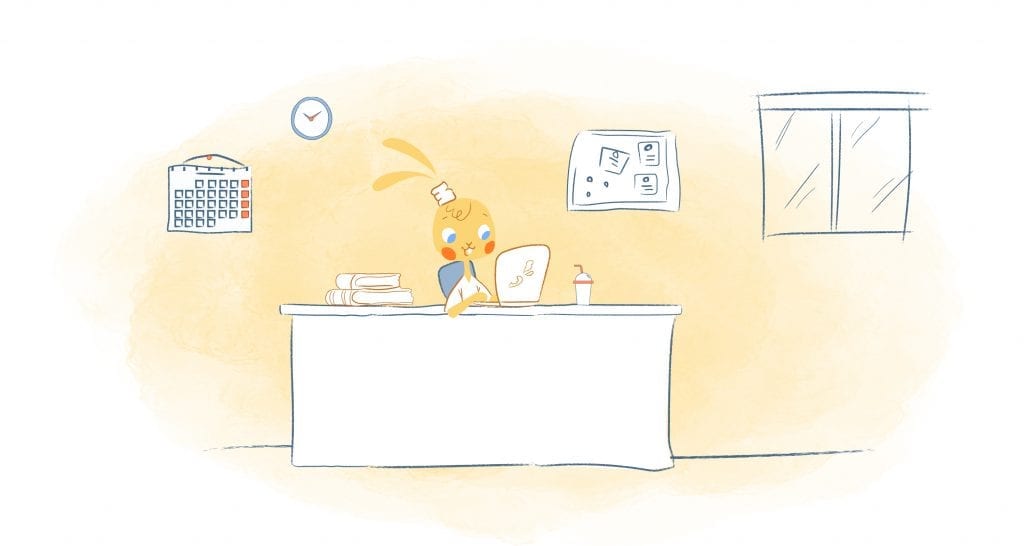

It should come as no surprise that satisfied employees are more productive. After all, if you feel physically ill every time you go into work, I doubt that you’ll be performing at your peak performance. Here are eight factors that negatively affect morale and productivity.
As someone in a leadership role, it’s your obligation to make sure that your team is happy, engaged, and enjoy coming into the workplace. When they are, they’ll be more productive and will be more likely to stick around — both of which are good for the bottom line.
But, to accomplish workplace productivity, you should be aware of what’s negatively affecting morale and productivity in the workplace. Knowing this will give you a fighting chance of turning things around.
1. Leadership
How can you expect employees to be productive when they don’t have confidence, trust, or respect for their boss. What will morale be like when leaders bully, micromanage, and can’t communicate expectations.
In both scenarios, the answer should be obvious. When leaders are lousy, productivity and morale are negatively impacted. “A poor supervisor is definitely the No. 1 factor that causes low productivity,” Barry L. Brown, President of a Florida-based consulting group told the National Business Research Institute.
“It’s been my experience that a good supervisor will motivate, inspire, encourage, and reward good performance,” Brown added. “Poor management, of course, is just the opposite, only in multiples. Employees who do not have a direct connection with the company begin to lose all the reasons for wanting to do that little bit extra and take the additional time to make something right.”
Even worse, don’t expect employees to hang around an organization when leaders are making disastrous mistakes. In fact, according to Randstad US, “Sixty percent have left jobs, or are considering leaving because they don’t like their direct supervisors.”
2. Workplace Culture
It shouldn’t be surprising that workplace culture is linked to productivity and morale. Research from the Alternative Board found that 86% of respondents believe that company culture helps productivity. Mainly this is because culture encourages engagement and high-performance mindsets. It also prevents competition and focuses more on a collaborative culture.
As for morale, when you have to go into a toxic environment every day, you’ll be disengaged, stressed, and more likely to call out of work. Eventually, you’ll jump ship to an organization that isn’t so harmful.
As a leader, you need to step up your game by strengthening skills like communication and EI. You also need to be aware of the signs of a toxic workplace like gossip and absenteeism. And, you need to create a work environment where people feel safe and can be themselves.
Most importantly, it’s a workplace where people can share their thoughts and feel like they’re a part of something biggers. And, support friendships at work by giving your team opportunities to get to know each other better, such as through team building activities and eating lunch together.
3. Incentives and Recognition
Who doesn’t want to be recognized for their hard work? And, whether you admit it or not, deep down inside we all enjoy surprised.
One of the simplest and quickest ways to lift your team’s spirits and output is by thanking them for all that they do. You can never go wrong with personalized “thank you” — either in-person or through email or a card. Throw a surprise party on a Friday afternoon after reaching a milestone. And, offer employees perks like flexible schedules, higher salary, vacation time, or continuing education reimbursement.
4. Autonomy
Encouraging ownership is another proven way to motivate employees. The main reason is that it shows them that you trust them enough to work when and where they like. It also gives them a chance to share their unique strengths and talents. And, autonomy makes people feel like their voices have been heard.
It’s not always easy to give up so much control. But, if you clearly communicate your goals and expectations, and have hired a talented and responsible team, you shouldn’t have much to worry about.
5. Opportunities
Employees strive for opportunities to learn and grow both personally and professionally. They also demand that their voices be heard. And, they want to make sure that they have a chance to work their way up the ladder at work.
You can provide your team with these types of opportunities by providing coaching and mentorship programs. You can also pay for them to enroll in a class or attend an industry event. And, be clear on what opportunities there are when they first join your organization so that they don’t feel like they’ve wasted years of their professional life in a job that wasn’t going anywhere.
6. The Right Tools
Let’s say that you got a flat tire on the way to work. There’s a spare in your trunk. But, you don’t have a jack or lug wrench. Besides already been frustrated about getting a flat in the first place, you’re even angrier and more defeated because you don’t have the tools to change the tire.
The same idea can be applied to your team. If they don’t have the proper tools and resources to do their job, then they’re obviously not going to be productive. Even worse, if this is an ongoing problem, you can imagine the amount of frustration they’ll have with you and your organization.
7. Health
It’s admirable that you’re offering your team health and individual dental insurance, health savings accounts, and paid sick days. It shows that you genuinely care about them as individuals and not just cogs in the wheel.
But, you should also make preventative care a priority as well. Fill the workplace with healthy and nutritious snacks. If there isn’t room for a gym, then provide memberships to a local gym. And, help them reduce work-related stress by offering quiet spaces for them to mediate — it also wouldn’t hurt if you stopped contacting them when they’re off the clock.
When employees are healthier, they’re more productive since they have the energy and stamina to drive through their tasks. When they aren’t as stressed they can focus on their work. And, it improves their moods and helps build emotional resilience.
8. Office Inefficiency
It’s probably not intentional. But, most offices weren’t designed with productivity and morale in mind. Thankfully, you can make a handful of adjustments to rectify this problem, such as:
- Don’t do everything in-house. Hire a company or contractor that can handle specific responsibilities better than you and your team.
- Replace tedious, manual processes that can be automated.
- Eliminate workplace distractions by turning off smartphone notifications and wearing noise-canceling headphones.
- Stop scheduling unstructured and unnecessary meetings.
- Provide employees with ergonomic furniture. Also, fill the office with plants and artwork. And, make sure that there’s appropriate lighting and the thermostat is set at a comfortable temperature.











Albert Costill
My name is Albert Costill and I'm a content marketer at Calendar. If I can help people become more productive in my journey, even better. If you ever have a question about your Calendar or how you can use it - - don't hesitate to reach out. I'm a Calendar Pro.